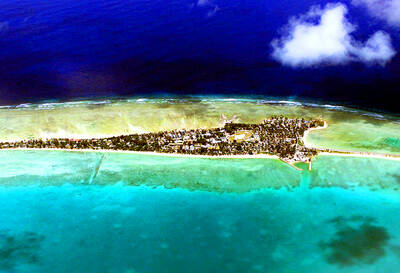The Falkland Islands government has accused Argentina of waging a campaign of “economic warfare” against it.
Speaking on the 27th anniversary of the end of the Falklands war, Mike Summers, a member of the Falkland Islands legislative assembly, said Argentina is deliberately hampering the islands’ three main industries of fishing, tourism, and oil and gas exploration.
He said the British overseas territory’s economic development is being held back by Argentinian policies aimed at forcing the islands to accept claims of Argentinian sovereignty. The Falkland Islands, or Las Malvinas, as the archipelago is known in Argentina, has a population of around 3,000 people and an annual income of £75 million (US$122.3 million). But the islands’ government believes the affluence of its inhabitants is being deliberately held back by Argentina.
Summers complained that Argentina has withdrawn from a commission to manage fisheries, which provide the bulk of the island’s income, which means fish stocks may be seriously damaged; that Argentina has stopped charter planes traveling from Chile to the Falklands by banning them from using Argentinian airspace, which has damaged the cruise ship industry; and the hydrocarbon business has been hit by a presidential decree from Buenos Aires that prevents anyone who works in the hydrocarbon industry in Argentina from doing the same in the Falklands.
“We don’t have good relations,” Summers said. “They are taking an economic warfare approach. It has created tension between the Falklands and Argentina. Economic development could be improved if we got on better. While the clear stated intention of the Argentines is to take over the Falklands whether we like it or not, we can’t co-operate better.”
A spokesman for Argentina’s foreign ministry said the measures would remain in place until Britain agrees to resume talks over Argentina’s claim of sovereignty.

DISASTER: The Bangladesh Meteorological Department recorded a magnitude 5.7 and tremors reached as far as Kolkata, India, more than 300km away from the epicenter A powerful earthquake struck Bangladesh yesterday outside the crowded capital, Dhaka, killing at least five people and injuring about a hundred, the government said. The magnitude 5.5 quake struck at 10:38am near Narsingdi, Bangladesh, about 33km from Dhaka, the US Geological Survey (USGS) said. The earthquake sparked fear and chaos with many in the Muslim-majority nation of 170 million people at home on their day off. AFP reporters in Dhaka said they saw people weeping in the streets while others appeared shocked. Bangladesh Interim Leader Muhammad Yunus expressed his “deep shock and sorrow over the news of casualties in various districts.” At least five people,

ON THE LAM: The Brazilian Supreme Court said that the former president tried to burn his ankle monitor off as part of an attempt to orchestrate his escape from Brazil Former Brazilian president Jair Bolsonaro — under house arrest while he appeals a conviction for a foiled coup attempt — was taken into custody on Saturday after the Brazilian Supreme Court deemed him a high flight risk. The court said the far-right firebrand — who was sentenced to 27 years in prison over a scheme to stop Brazilian President Luiz Inacio Lula da Silva from taking office after the 2022 elections — had attempted to disable his ankle monitor to flee. Supreme Court judge Alexandre de Moraes said Bolsonaro’s detention was a preventive measure as final appeals play out. In a video made

It is one of the world’s most famous unsolved codes whose answer could sell for a fortune — but two US friends say they have already found the secret hidden by Kryptos. The S-shaped copper sculpture has baffled cryptography enthusiasts since its 1990 installation on the grounds of the CIA headquarters in Virginia, with three of its four messages deciphered so far. Yet K4, the final passage, has kept codebreakers scratching their heads. Sculptor Jim Sanborn, 80, has been so overwhelmed by guesses that he started charging US$50 for each response. Sanborn in August announced he would auction the 97-character solution to K4

SHOW OF FORCE: The US has held nine multilateral drills near Guam in the past four months, which Australia said was important to deter coercion in the region Five Chinese research vessels, including ships used for space and missile tracking and underwater mapping, were active in the northwest Pacific last month, as the US stepped up military exercises, data compiled by a Guam-based group shows. Rapid militarization in the northern Pacific gets insufficient attention, the Pacific Center for Island Security said, adding that it makes island populations a potential target in any great-power conflict. “If you look at the number of US and bilateral and multilateral exercises, there is a lot of activity,” Leland Bettis, the director of the group that seeks to flag regional security risks, said in an